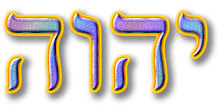May the LORD give you understanding and wisdom as you read this teaching from Sid Roth. He has captured the esssence of the anointing of our LORD and gives us such a wonderful and amazing picture of Mary of Bethany....her humbleness and her love for her Messiah.
At the time of the anointing...Jews all across Israel were picking out their Passover lambs. they would be taken home and treated as one of the family. Loved on, played with....then on Passover, would be sacrificed.
The Anointing of Yeshua by Mary of Bethany
by Sid Roth
Chapter 12 of John (and the parallel accounts in Matthew 26 and Mark 14), takes place 6 days before the Passover, when Yeshua would be slain as our Passover lamb.
Yeshua comes back to Bethany, just outside the walls of Jerusalem. (He had been here earlier and raised Lazarus from the dead.) To put it in perspective, the road from Bethany to Jerusalem winds past the Mount of Olives.
To honor Yeshua, certain people in Bethany hold a special meal with Him at the house of someone named Simon the Leper. (Understand that no one would have broken bread with someone who was actively suffering from leprosy—so it must be that this Simon was someone whom Yeshua had healed from leprosy.)
During this meal a remarkable event occurs. As the men are reclining at the meal, a woman comes to Yeshua with an alabaster vial of perfumed oil—fragrant nard, or spikenard.
The woman begins to pour it over His head (Matt. 26:7) and drops to His feet to anoint them also with this very costly perfume. It says in verse 3 of John 12 that the fragrance filled the house. It was so powerful.
John identifies the woman as Mary, the sister of Lazarus.
As if the startling act of pouring fragrant oil on Yeshua’s head were not enough, she goes a step further and does something that would have been even more disruptive and more socially shocking in her day. She uncovers her hair in the presence of all these people and begins to wipe Yeshua’s feet with her hair.
Jewish women in Yeshua’s day (and Orthodox Jewish women of today) kept their hair covered, except in the intimacy of the family circle. To uncover one’s head like this lacked social decorum, to say the least! But why did Mary uncover her hair? She did it to wipe the feet of man who had raised her brother from the dead.
Paul writes about women’s hair in another context and says that the hair of a woman is her “glory.” ( I Cor. 11:15). So here Mary is taking her glory and using it as a rag to wipe the feet, the lowest part, of Yeshua’s body.
This is an act of great humility, love and worship.
I want you to picture her, first bending over to anoint His head as He is reclining on the ground at the low table. Then she gets on her knees to anoint His feet. And finally she bends all the way over, her face to the ground, as she wipes His feet with her hair.
This is a picture of complete worship and surrender.
Why does she choose this particular way of honoring Him? The text does not say. Certainly to pour prefumed oil on the head of a liberator is something that is still done today in the Middle East.
I remember seeing a picture on the front page of the Chicago Tribune back during the first Gulf War that showed a Kuwaiti woman pouring perfume on the head of an American GI as the US troops marched into Kuwait City.
Certainly Yeshua liberated Lazarus from an early grave, and in doing so He also liberated Mary, who probably would have faced an unknown economic future without her brother.
But I think there’s more going on here. I suspect that Mary’s act also had in it a great deal of repentance and submission.
I think (and this is just my opinion) that Mary’s heart had been broken, her trust in Yeshua damaged, when He failed to show up in time to heal Lazarus. Remember, she spent that time in Luke 10, listening to Him, drinking in all that she could then perceive in Him. She knew He could heal Lazarus—but He didn’t come in time when she needed Him.
I think so many of us can identify with that. We pray for something critical to our lives or the lives of others close to us, and it seems like God does nothing. When this happens in the life of some Christians, it brings years of bitterness. For others it brings a season of questioning.
But if our heart is broken by such circumstances where we don’t understand why God apparently did not intervene, we can choose another route. We can keep walking with Him, worshipping Him for being God, even in the midst of our great pain. This is sometimes the hardest thing to do. How can this Person who says He loves me—and I know He does—how can He let this happen? How can He seemingly ignore my impassioned pleas?
I’ve been there in my life—and I don’t have any pat answers to offer you. The hardest times are those when the answer does not seem to come at all. But even so there are other times when the answer does come but not on my timetable. When that happens I sometimes find myself having to repent and ask forgiveness of the Lord for my mistrust and hurt feelings—for doubting Him when His timing did not coincide with mine.
I think that was part of the dynamic in John 12 with Mary. There was a sense in which she was repenting for not trusting Him back in John 11. Remember that Mary was the sister who did not ask Him for anything, but only brought up to Him His tardiness.
So here in chapter 12 she is formally saying to Him by her actions that she has once again submitted her heart to His. Not only is she prostrated at His feet, but she has used her “glory” to wipe the lowest part of His body.
A complete act of humility.
Though she did this in front of many witnesses, it was essentially a private act between her and Yeshua. But note that Yeshua let her do it. He did not stop her. When you or I want to pour the oil of love over Him in worship or in contemplative/devotional prayer, He will always receive it from us also.
Mary of Bethany, our model for the heart of contemplative prayer, committed an extravagant act of repentance and worship, just a few days before Yeshua would undergo His sufferings for the sins of the world.
In the presence of many others, probably mostly men, this woman Mary came into the place where a banquet was being held in Bethany to honor Yeshua. Without fanfare or explanation Mary broke a precious container of perfumed oil—the fragrance was spikenard—and began pouring it over Yeshua.
First she poured it on His head as He was reclining at table. Then she knelt down and poured it on His feet. And in a final act of humility and submission, she took the covering of modesty off her head, bent fully over and wiped the excess oil off His feet with her hair. This act was literally an anointing. The word “anoint” means “to pour oil upon or to smear with oil.” Most of us recall that the title “Messiah” (which also means “Christ”) comes from the Hebrew word mashiach, meaning “one who is anointed.”
So here we have the picture of Messiah Yeshua, the Anointed One, being quite literally anointed with oil.
Scripture contains other examples of individuals who were anointed with oil. A good example is the anointing of David by Samuel.
But in the Old Covenant scriptures anointing was to be done by a prophet or a priest. The idea was that in that act God was confirming the calling and empowerment of that individual. So the anointing with oil was to be done by someone who was an acknowledged man of God—someone with authority.
Here in the story of Mary anointing Yeshua we have anointing with oil being done by—a lay woman! I wonder if there is an element of this act that is a prophetic statement about the New Covenant which Yeshua was about to inaugurate in just a few days. In that New Covenant we would become a “priesthood of believers” in which there would be “no male or female”—no differences of service rank based on gender.
How did the men at the banquet table receive what Mary did? We do know from the text that the disciples, especially Judas, protested that her act was a “waste” of an expensive asset. It could have been sold and given to the poor. But instead of making a contribution to the poor in Yeshua’s name, Mary chose to “waste” it on Yeshua Himself.
I don’t know if you have noticed this, but even Christians will speak of time spent in worship and in intimate prayer with the Lord as if it is just the preliminary activity for something else—like Bible study or a sermon or even ministering in prayer to the congregation.
We have to get away from this kind of thinking. What would be so bad if we met together for a “service” and all we did was waste time on Yeshua, pouring out the oil of worship from our hearts?
Well, what did Yeshua say about Mary’s act of extravagance?
He counters the criticism by saying that the concern for using this asset for the poor is misplaced. Notice that He doesn’t make any reference to the way Mary behaved at the tomb of Lazarus. That’s old news. Instead He affirms Mary, saying that she has anointed His body for burial and saying further that what she has done will be told about her wherever the gospel is preached.
Now here’s something more to think about. If you look at the textual clues in the gospel accounts, you will see that this dinner likely occurred less than a week before Yeshua’s arrest and crucifixion.
Perfumed oil, particularly when it soaks into clothing or hair, is very long-lasting in effect. The fragrance of it can last for days, even when some of it is washed off.
I want you to think about this. Mary poured the perfume all over His hair. Undoubtedly it dripped onto His clothing. And Mary had it all over her hair and hands as she did this.
When our Lord was undergoing the brutality of His sufferings just a few days hence, is it possible that the fragrance of this perfume was still lingering on Him? Is it possible that even in the midst of all He underwent for our redemption that there were moments when a slight breeze may have stirred His hair for a moment, releasing some of that fragrance?
And if so, would it have reminded Him of the act of extravagant worship poured out on Him from a heart repenting and submitting to Him in love—a heart that did not care what anyone else thought about her or about Him?
And what about Mary? That perfume got all over her as well. How do you suppose she felt in her grief at hearing what happened to Him just a few days later? Do you think she was glad at least that she had so publicly repented before Him, so publicly honored Him?
And how much more so after His resurrection!
You know that we all have opportunities to do what Mary did. We all have opportunities to blame the Lord for not coming through for us on time, or for allowing events to take a turn that we just puzzle over because they seem so far out of God’s declared will for us in His word. And then we have the opportunities to repent from our wanting to blame Him, to accuse Him of failing to love us enough. Yes, we have walked in Mary’s shoes.
I want you to know that if you are one who has blamed the Lord for not rescuing you or your loved one in a desperate situation, or for in some other way “failing” to perform what He promised in His word, it’s not too late even now to humble yourself at His feet.
Take this opportunity right now to sit humbly before Him. Dare to raise your eyes to His and see the loving acceptance there in His heart. Ask Him to forgive your ignorance. Because that’s really what it is—we truly don’t know what is really happening in the spirit realm most of the time.
Ask Him for grace to love Him, to walk with Him in the depth of love. He always answers prayers for grace. That’s His specialty!
Subscribe to:
Post Comments (Atom)










No comments:
Post a Comment